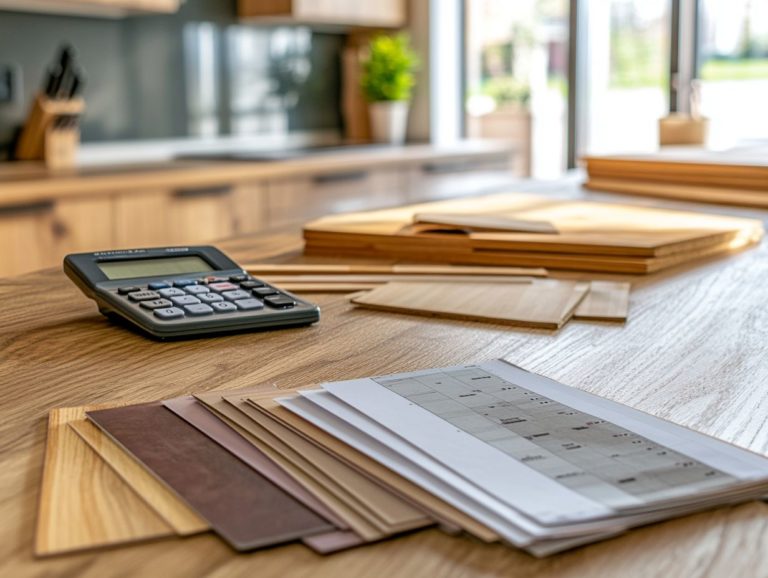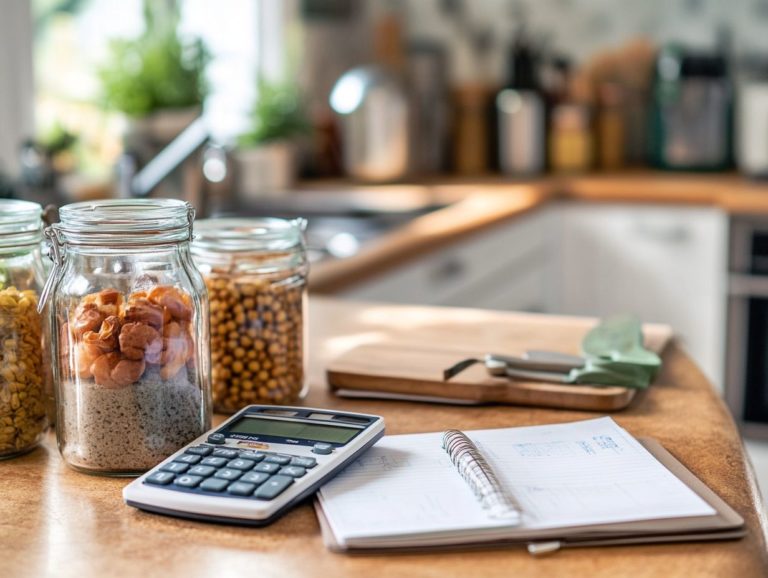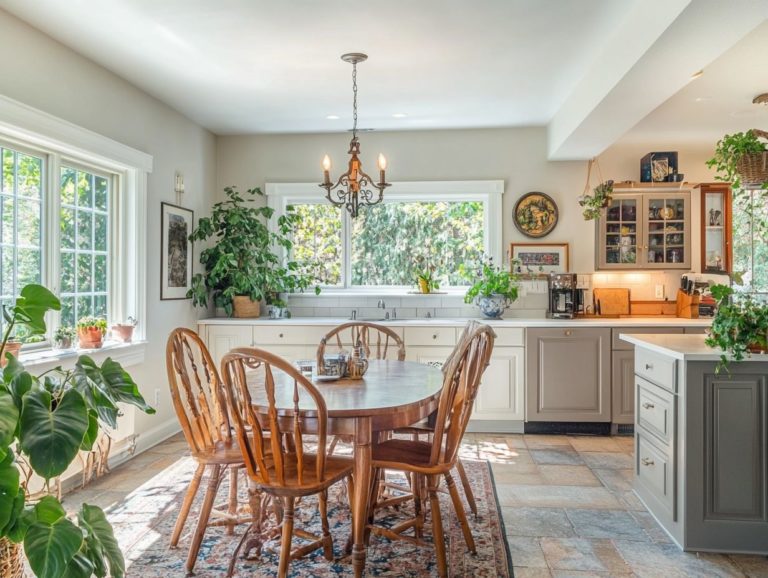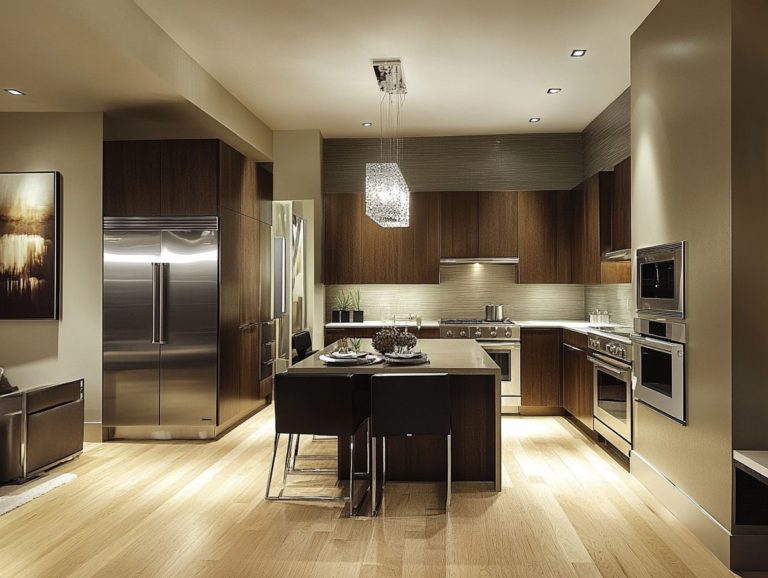How to Allocate Your Kitchen Remodel Budget
Embarking on a kitchen remodel is an exciting journey, yet it can quickly become overwhelming, particularly when it comes to the important budget.
This guide will help you navigate the essential factors to consider as you assess your remodel budget. You’ll learn how to establish priorities and understand the major expenses involved.
You’ll uncover practical strategies for trimming costs while maximizing impact, whether you choose to tackle projects yourself or enlist the expertise of professionals.
Get ready to transform your kitchen into an amazing space without straining your finances!
Contents
Key Takeaways:
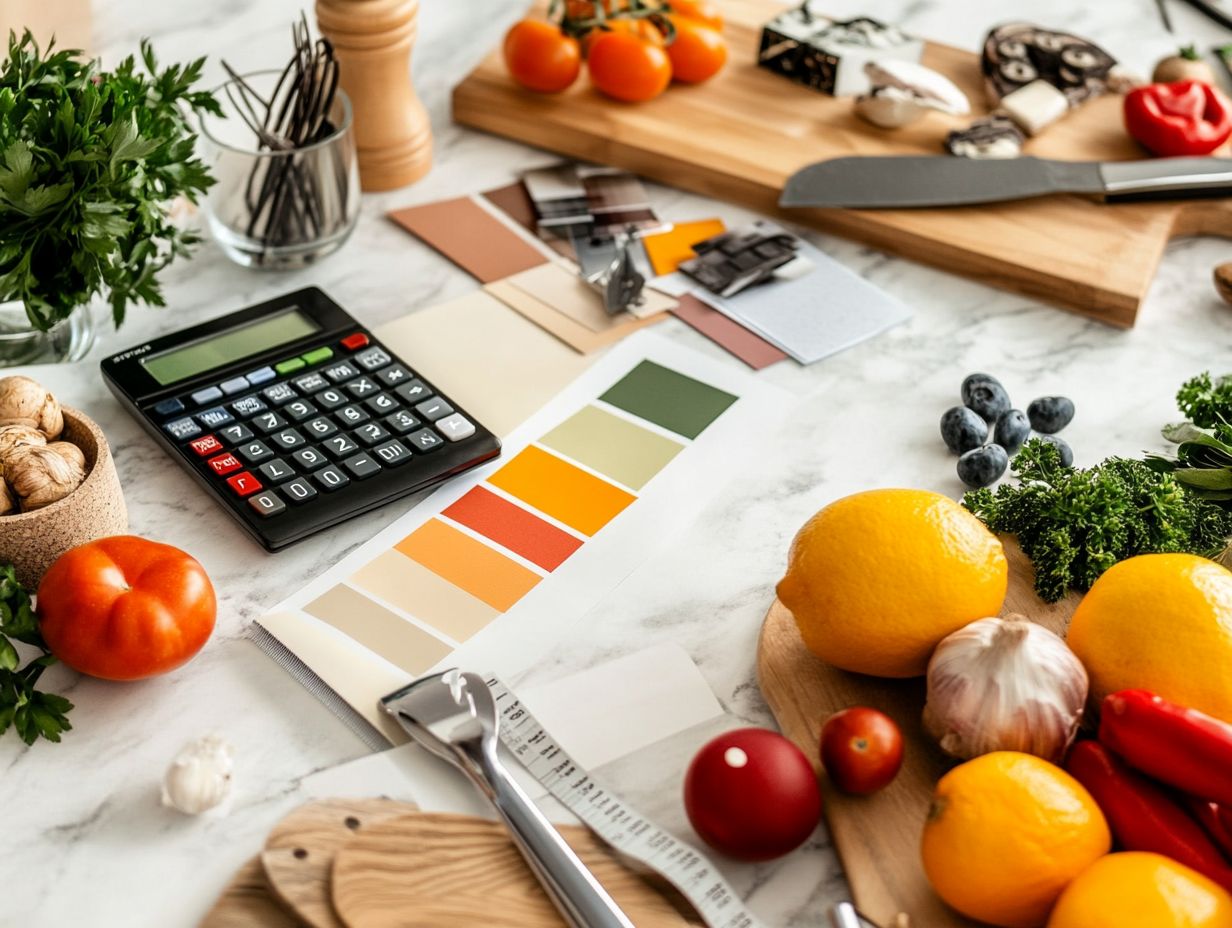
Assess your needs and set a realistic budget for your kitchen remodel by considering factors such as the size of your space, desired changes, and materials.
Prioritize your budget by allocating funds to major expenses like appliances and cabinets while finding ways to save on smaller costs like fixtures and finishes.
Maximize the impact of your budget by focusing on key areas like cabinets, countertops, and lighting, and carefully weigh the benefits of DIY versus hiring professionals.
Assessing Your Kitchen Remodel Budget
Evaluating your kitchen remodel budget requires a clear understanding of the various factors that can impact your overall expenses, especially in a vibrant city like Chicago where the housing market has a considerable influence.
Each component—from the kitchen cabinets and storage units to appliances and labor costs—plays a crucial role in shaping the total renovation expenses.
It’s vital to carefully look at your needs and financial capabilities to ensure a successful and satisfying transformation.
Factors to Consider
When planning your kitchen renovation, there are several important factors to consider for a project that is both successful and financially sound.
First, the selection and costs of appliances can greatly influence your overall budget, often affecting design and layout choices.
Labor costs can also be significant, fluctuating based on the complexity of your project and local market rates; these essential elements require your attention.
Thoughtful kitchen design ensures that every feature serves a functional purpose while also reflecting your personal style.
Use smart financial planning—like setting aside a contingency fund for unexpected expenses—to deftly navigate potential obstacles and keep your dream kitchen comfortably within budget.
Creating a Realistic Budget

Crafting a realistic budget for your kitchen remodel is crucial for your home improvement project’s success. It enables you to plan effectively for renovation costs while ensuring you allocate your funds wisely.
With a well-thought-out budget, you can turn your vision into reality without financial stress.
Setting Priorities and Allocating Funds
Setting priorities and allocating funds is essential for your kitchen remodel, ensuring that critical elements like cabinetry and lighting receive the financial attention they deserve.
This strategy maximizes the functionality of your cooking and dining spaces while enhancing the overall aesthetic appeal.
Take the time to research material prices and compare options for everything from countertops to flooring.
By exploring different suppliers and weighing product quality against cost, you can uncover the best deals and make informed decisions about where to focus your spending.
This thorough preparation will help you create a balanced renovation plan that delivers both style and practicality, ensuring that every dollar you invest contributes meaningfully to your dream kitchen.
Cost Breakdown of a Kitchen Remodel
A comprehensive cost breakdown of a kitchen remodel enables you to grasp the intricacies of renovation expenses, shedding light on everything from significant expenditures to the materials and labor costs that factor into your project.
Understanding these elements ensures you can make informed decisions throughout the renovation process.
Major Expenses to Expect
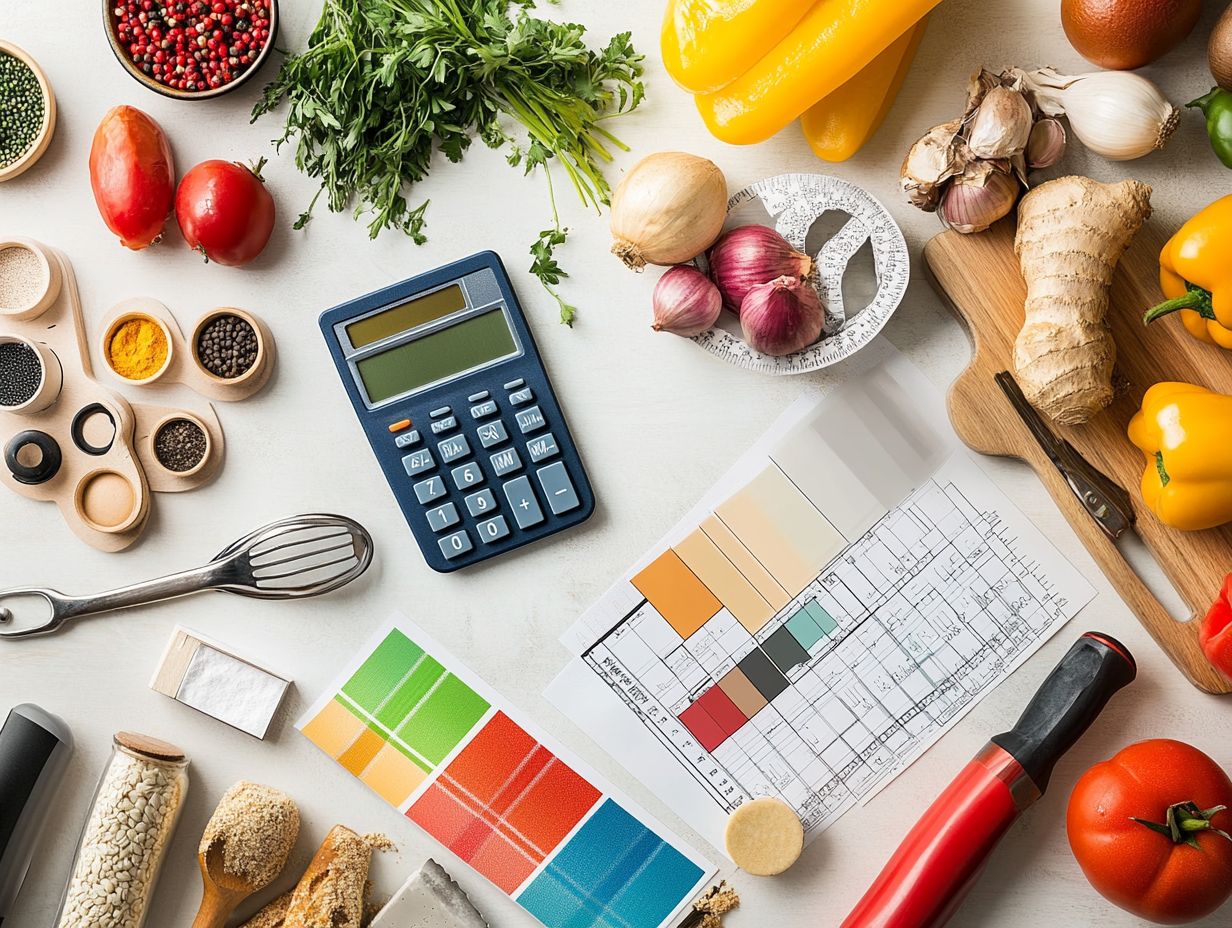
Planning a kitchen remodel? Brace yourself for significant expenses in key areas: appliances, cabinetry, countertops, flooring, and plumbing. Understanding these elements is crucial for budgeting.
-
Kitchen Appliances: Prices vary dramatically, from budget-friendly to high-end options. Typically, budget between $2,000 and $10,000.
-
Cabinetry: Choose materials that match your style and stay within budget. Custom designs can easily soar past $20,000.
-
Countertops: These range from economical laminates to luxurious granite. A typical budget is between $2,000 and $5,000.
-
Flooring: Flooring affects the look and durability of your kitchen. Costs usually range from $1,500 to $4,000.
-
Plumbing: Don’t overlook plumbing needs; unexpected expenses can arise if not planned. A plumbing budget might run from $500 to $3,000.
By planning carefully, you can minimize financial stress and create a kitchen that aligns with your vision.
Ways to Cut Costs
Want to stay within budget? Explore strategies to reduce expenses while creating a beautiful kitchen.
This makes financial planning vital for your renovation project.
Strategies for Saving Money
Implement effective strategies to save money without sacrificing quality. Gather multiple contractor quotes to see market rates and negotiate prices.
Check out local home improvement stores or online marketplaces for discounted materials. Look for surplus or slightly imperfect items at a fraction of the retail price.
Consider updating the surfaces of your existing cabinets instead of replacing them. Open shelving can also add a unique touch while saving money.
With thoughtful planning, every dollar spent will contribute to a stunning kitchen that meets your needs.
Maximizing Your Budget for Impact

Maximizing your budget is essential when remodeling your kitchen. This approach enhances both the look and functionality of your space, increasing your home’s value.
By thoughtfully allocating resources, you can create a kitchen that is beautiful and serves your needs effectively.
Key Areas to Focus On
Focus on key areas like design, cabinets, appliances, and lighting. Investing in these elements transforms a functional space into a culinary haven.
The layout should promote smooth traffic flow, ensuring work zones are accessible and efficient. High-quality cabinetry boosts aesthetics and provides durable storage.
Upgrading to energy-efficient appliances lowers utility bills while enhancing your cooking experience. Thoughtfully selected lighting sets the mood and highlights design features.
These considerations lead to a kitchen that is not only stunning but also highly functional.
DIY vs Hiring Professionals
When you’re faced with the decision of whether to tackle your kitchen remodel yourself or hire professionals, it’s essential to weigh the merits and drawbacks of each approach.
This choice carries considerable implications for the outcome of your project. Both options offer unique advantages and challenges that can shape your renovation experience.
Benefits and Considerations for Each Option
Understanding the benefits and considerations of both DIY renovations and hiring contractors is crucial for you as a homeowner.
Opting for DIY renovations can offer you significant cost savings. Especially if you have a flair for creativity and some handy skills, this approach allows you to work at your own pace.
You can tailor every detail without the pressure of external timelines. However, taking on your project can be exciting but often comes with a learning curve that requires patience and adaptability.
On the other hand, hiring professionals brings efficiency and a wealth of experience to your project. With experts at the helm, you can rest easy knowing that the work will meet local building rules and be completed within the agreed timeframe.
There’s peace of mind in trusting professionals to navigate potential pitfalls during the renovation process. This allows you to focus on the excitement of your new kitchen.
Watch the video for more insights on kitchen renovations!
Frequently Asked Questions
- What factors should I consider when allocating my kitchen remodel budget?
When deciding how to allocate your kitchen remodel budget, consider your priorities, the size of your kitchen, the complexity of the project, and any additional features or upgrades you want to include. - Should I set aside a contingency budget for unexpected costs?
Yes, it is always a good idea to set aside a contingency budget of at least 10-20% of your total budget to cover unexpected costs. - How can I save money when allocating my kitchen remodel budget?
You can save money by setting a realistic budget, prioritizing your needs over wants, researching and comparing prices for materials and services, and being open to alternative options. - Is it necessary to hire a professional for my kitchen remodel?
While it is possible to do a kitchen remodel yourself, hiring a professional is highly recommended to ensure the project is done correctly and to avoid costly mistakes. - What are some common mistakes to avoid when allocating a kitchen remodel budget?
Common mistakes include not setting a realistic budget, not factoring in additional costs such as permits and labor, and not prioritizing your needs over wants. - How can I ensure my allocated budget is being used efficiently during the remodel process?
To ensure your budget is used efficiently, communicate clearly with your contractor and regularly review the progress and costs of the project. Stick to your chosen design and avoid costly changes or additions.
Don’t miss out on your dream kitchen! Start planning your kitchen remodel today!


